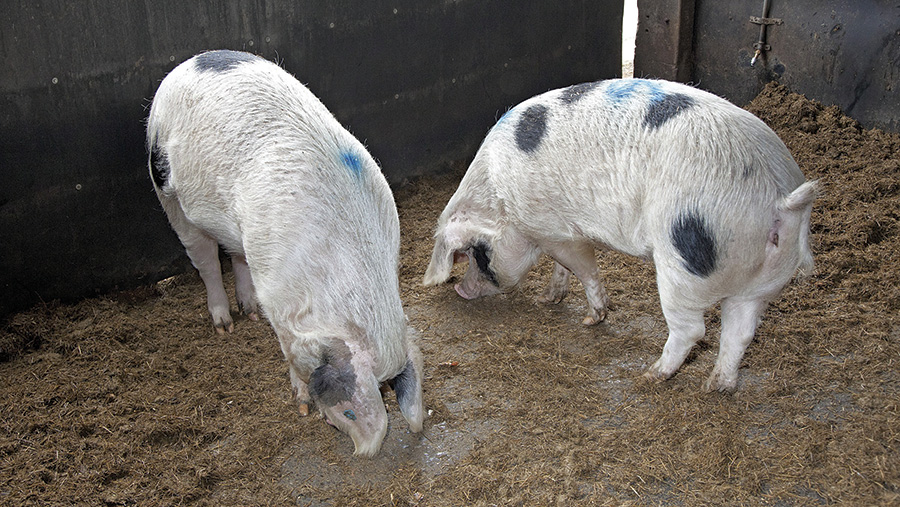Rare pig breeds such as Gloucestershire Old Spot face extinction
 © Jonathan Page
© Jonathan Page Some of Britain’s iconic, traditional pig breeds will face extinction if a dramatic decline in numbers is allowed to continue, the Rare Breeds Survival Trust has warned.
The livestock conservation charity, which produces a watchlist of pedigree animals each year, described the situation for some pig breeds as “extremely worrying”.
Of the 11 native British pig breeds, seven are in decline. The Gloucestershire Old Spots – arguably one of the best-known breeds – are showing the most dramatic fall.
See also: Gloucester Old Spots gain protected status
In 2014, there were 837 Gloucestershire Old Spot sows producing birth-notified litters. But by 2016 this had dropped to just 416 sows, putting the breed in the trust’s “at risk” category.
Numbers of other breeds such as the British Landrace, Large Black, Middle White and British Lop are already in the endangered category, with fewer than 200 breeding sows remaining.
The trust’s chief executive, Tom Beeston, said: “There is an urgent need to encourage more producers to take on these breeds to stop the genetic pool shrinking.
“Production systems change and diseases continue to evolve, so it is vital that we keep as diverse a gene pool as possible. A crucial gene in a native breed may help protect future generations of commercial pigs.”
But Mr Beeston recognised that in the shorter term breeders had to have a market for their produce.
“That means we need more people to buy pedigree native-breed pork – and, when they buy, to make sure that they are buying the real thing,” he added.
Eating qualities
Taste is the key selling point for native breed meat products and food experts acknowledge that different breeds have different cooking and eating qualities, Mr Beeston said.
“But the great problem we must overcome is that many people are probably not eating the real thing. So it is important that native pedigree meat products are properly identified and that the buying public gets what it is paying for.”
The RBST is urging breeders and consumers to use social media site Twitter with the hashtag #GoNative to discuss the importance of fully traceable, pedigree-bred meat.
“I have lost count of the times people have told me they have had Gloucestershire Old Spot sausages, but there are only 416 registered pedigree breeding females in the whole country. If there was that much pedigree meat on the market, we wouldn’t be seeing the breeding numbers falling.”
Other species on the Watchlist have fared better, with some native sheep and cattle breeds seeing rising interest as consumers favour meat from more extensive, grass-based systems. For more see the RBST’s Watchlist:
